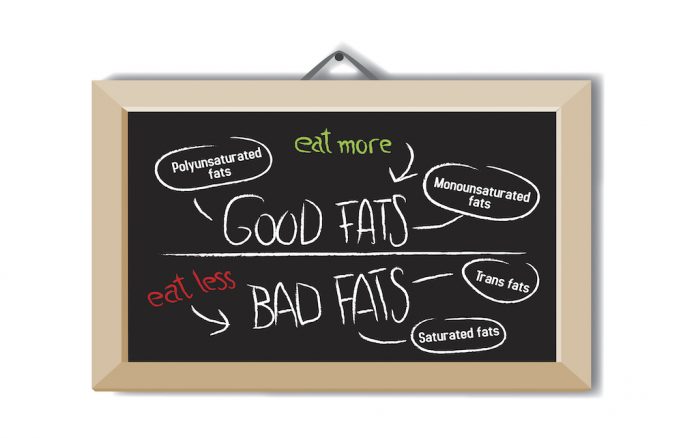
It seems the discussions about dietary fats never end. Although it’s been determined that trans fats should be avoided at all costs, there is somewhat of a gray area when it comes to other fats, including healthy fats and which ones are better than others. In a recent study from the University of California, Riverside, for example, some people were surprised by the findings concerning soybean oil, which a number of experts claim is healthy.
Generally, fats fall into two categories: “bad” or "unhealthy," which include trans fats and saturated fats; and “good” or "healthy fats," including monounsaturated and polyunsaturated fats. However, there are studies indicating that coconut oil, which is high in saturated fat, is healthy because it contains medium-chain triglycerides rather than long-chain triglycerides, the latter of which are found in meats and dairy foods (if you love coconut oil, we highly recommend this butter flavored coconut oil from our partner Barlean's. It is ridiculously good! If you prefer plain coconut oil, the we recommend this one).
Read about healthy fats that don’t make you fat
At the same time, there are other experts who insist saturated fats found in red meat, poultry, and dairy products are not unhealthy, especially those who follow the keto diet. Therefore, there are some areas of discussion that should be kept in mind when reviewing the findings of studies on fats.
In the new study, the investigators established four different treatment groups of mice. All four groups were fed a diet that consisted of 40 percent, which is similar to that of Americans. The groups were as follows:
- 40 percent coconut oil (mainly a saturated fat)
- 20 percent coconut oil and 20 percent soybean oil, the latter of which is mainly polyunsaturated fat
- 40 percent coconut oil and added fructose
- 20 percent coconut oil and 20 percent soybean oil with added fructose
All of the mice were fed the same number of calories and they all consumed similar amounts of food. Here’s what the investigators observed:
- Mice who consumed soybean oil had an increase in weight, larger fat deposits, and a fatty liver with indications of damage, diabetes, and insulin resistance when compared with the coconut oil groups. All of these factors are associated with metabolic syndrome.
- The addition of fructose had less severe impacts than did soybean oil, but the sugar did cause more damage to the kidney and a significant increase in prolapsed rectums, which is a symptom of inflammatory bowel disease
- Mice who consumed the soybean oil diet gained nearly 25 percent more weight than did the mice who ate coconut oil
- Mice who consumed a fructose-enriched diet gained 12 percent more weight than those who were on the coconut oil diet
Read would you eat Monsanto’s “healthy” soybean oil?
The authors were surprised that soybean oil caused more diabetes and obesity than did fructose, although both of these factors played a negative role on health.
Why are these findings important? Because soybean oil is a major part of the American diet. The oil is found in thousands of food products and makes up 60 percent of the edible oil consumed in the United States. The increase in the consumption of soybean oil since the 1960s has mirrored the rise in obesity in the United States for several decades. Is there a relationship between these two factors?
When it comes to fructose, daily consumption in the US also has risen significantly, from about 37 grams daily in 1977 to about 49 grams in 2004. Again, is there a direct relationship between these two factors?
The bottom line at this point is that we need to look at our consumption of soybean oil and fructose and their impact on obesity, diabetes, nonalcoholic fatty liver disease, and insulin resistance. As an added note, the same researchers also conducted another study using corn oil and found that it induced more obesity than did coconut oil but not as much as soybean oil. Further comparative studies are needed to determine the impact of other vegetable oils, such as canola, palm, and olive oil, on cardiovascular health.
DISCLAIMER: This article contains affiliate links, which means that if you click on one of the product links, Naturally Savvy will receive a small commission so we can keep pumping out amazing articles like this one. Thank you so much for your support!
Sources
Neaton S. Soybean oil causes more obesity than coconut oil and fructose. University of California, Riverside. 2015 Jul 22
Poonamjot Deol P et al. Soybean oil is more obesogenic and diabetogenic than coconut oil and fructose in mouse: potential role for the liver. PLoS ONE 2015 Jul 22










